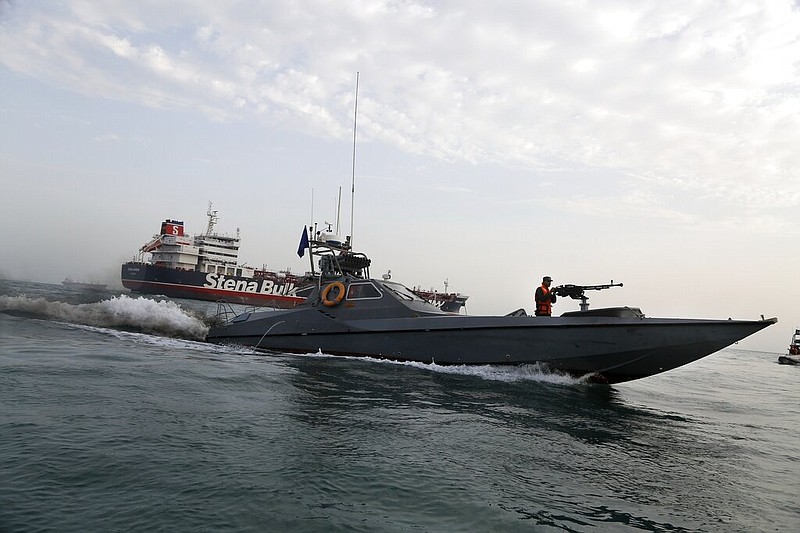RIYADH, Saudi Arabia - Saudi Arabia alleged Wednesday that Iranian cruise missiles and drones attacked the heart of the kingdom's oil industry, showing journalists the remains of the weapons while stopping short of directly accusing Iran of launching the assault. Iran denies being involved and has threatened the U.S. it will retaliate "immediately" if Tehran is targeted over the attack, which was claimed by Yemen's Houthi rebels.
The news conference by Saudi military spokesman Col. Turki al-Malki comes after a summer of heightened tensions between Iran and the U.S. over President Donald Trump unilaterally withdrawing America from Tehran's 2015 nuclear deal with world powers.
While the U.S. has said Iran was behind the attack on Saudi oil installations this weekend, al-Malki made a point not to directly accuse Iran of firing the weapons or launching them from inside of Iranian territory. The kingdom has sought help from international investigators and the United Nations, both lengthening the probe and internationalizing its conclusions.
"The attack was launched from the north and was unquestionably sponsored by Iran," al-Malki told journalists.
By stopping short of saying the missiles were launched from Iran, the kingdom potentially avoids a response that could lead to war among the heavyweight countries of the region and international superpower, the United States. However, not retaliating to the strikes also carries the risk of leaving Saudi Arabia exposed to continued attacks.
The news conference took place with a backdrop of broken and burnt drones and pieces of one cruise missile allegedly collected from the attacks.
Al-Malki described the drones as "delta wing" models, which looked like large triangles. The cruise missile had a small jet engine attached to it, he said.
Eighteen drones and seven cruise missiles were launched in the assault, Al-Malki said, with three missiles failing to make their targets. He said the cruise missiles had a range of 700 kilometers (435 miles), meaning they could not have been fired from inside Yemen. He played surveillance video he said showed a drone coming in from the north.
"This is the kind of weapon the Iranian regime and the Iranian IRGC are using against the civilian object and facilities infrastructure," he said, using an acronym for Iran's paramilitary Revolutionary Guard.
Iran sent a note to the U.S. via Swiss diplomats in Tehran on Monday, reiterating that Tehran denies being involved in the Saudi attack, IRNA reported. The Swiss have looked after American interests in Tehran for decades.
"If any action takes place against Iran, the action will be faced by Iran's answer immediately," IRNA quoted the note as saying. It added that Iran's response wouldn't be limited to the source of the threat, suggesting it would inflict damage beyond what it had suffered.
IRNA separately reported Wednesday that Iran's first delegation for the annual U.N. General Assembly meeting had not left Iran because the U.S. has yet to issue them visas. Foreign Minister Mohammad Javad Zarif was to travel to New York on Friday, with Iranian President Hassan Rouhani following Monday, according to the agency. The U.N. meeting had been considered as an opportunity for direct talks between Rouhani and Trump.
As the host of the U.N.'s headquarters, the U.S. is mandated to offer world leaders and diplomats visas to attend meetings there. But as tensions have risen, the U.S. has put increasing restrictions on Iranians like Zarif. Since becoming Iran's president in 2013, Rouhani has spoken each year at the General Assembly.
The U.S. State Department did not respond to requests for comment Wednesday. Trump separately tweeted: "I have just instructed the Secretary of the Treasury to substantially increase Sanctions on the country of Iran!" He did not elaborate, and Treasury officials could not immediately be reached.

